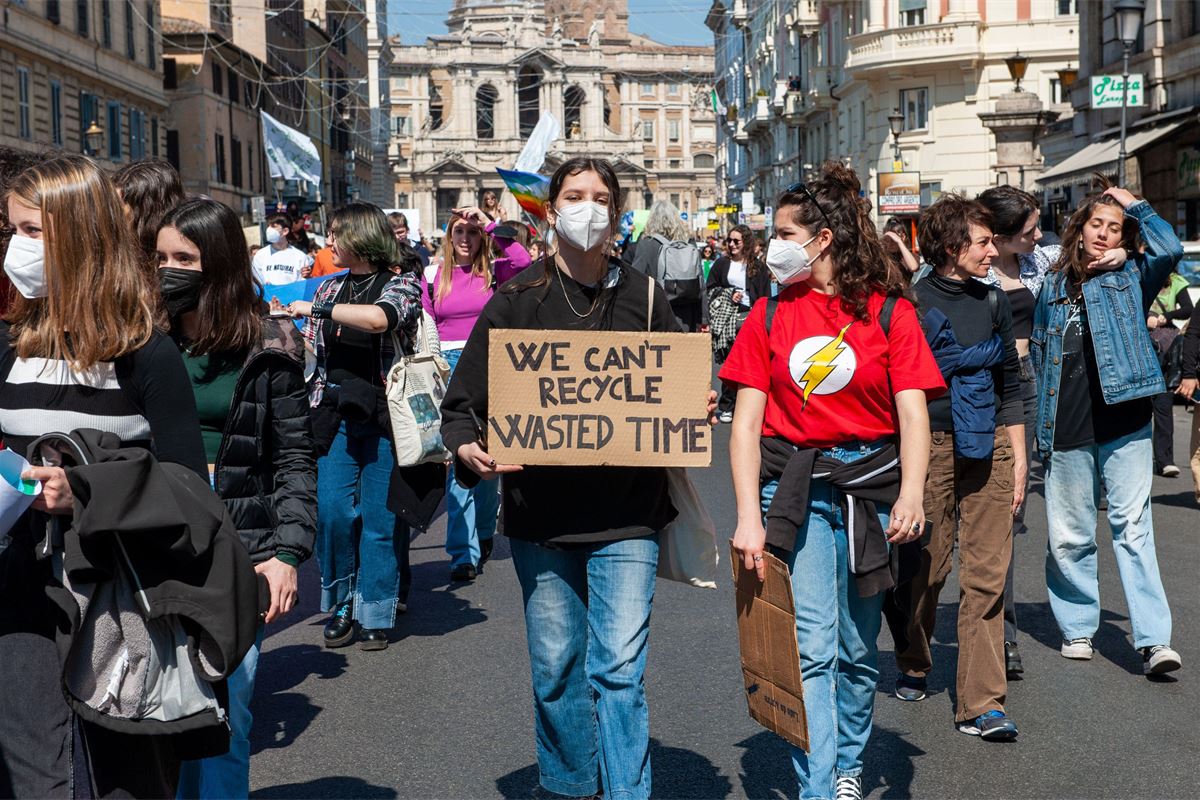Europe is the world’s fastest warming continent. Climate risks threaten its energy and food security, ecosystems, infrastructure, water resources, financial stability and health.
Extreme weather events such as storms, heatwaves and flooding accounted for 85,000 to 145,000 human fatalities and more than half a trillion euros in economic losses over the past 40 years. Severe climate events are expected to intensify, even under optimistic global warming scenarios, and urgent action is needed to safeguard our societies.
The EU, recognising these worsening conditions has progressively engaged in climate action. The launch of the Green Deal in 2019 marked a tectonic shift, setting the goal of achieving climate neutrality by 2050 in line with the Paris Agreement. The EU was the first — and remains the only — global economic juggernaut committed to such a transition.
The bloc then deployed an ambitious climate policy framework and has been reducing its domestic greenhouse gas (GHG) emissions, achieving a 29% decline since 2005. The latest assessment of national energy and climate plans from May 2025 estimates that the continent is on track to reduce GHG net emissions by at least 55% by 2030, compared to 1990 levels.
EU climate goals risk derailment
However, there is a bumpy road ahead. Europe’s climate policy framework has a blind spot when it comes to imported (or consumption-based) emissions. The EU’s consumption patterns and the way its supply chains are organised have negative spillover effects on other countries through the energy production, agriculture and textiles sectors.
These imported emissions are not accounted for in the EU’s climate legal framework, yet they are estimated to represent nearly half of the continent’s domestic emissions. This calls into question the validity of the EU’s climate targets and efforts. Our action must be global.
Recent assessments of national climate efforts assume that Europe will maintain its current pace of emission reduction. This seems optimistic in light of recent policy developments. The difficulties in agreeing on an emissions reduction target for 2040, ongoing uncertainties in the hard-to-abate agriculture and transport sectors, and the EU’s ‘omnibus’ frenzy all illustrate this challenge.
The next Multiannual Financial Framework (MFF) proposal also pushes for a closer alignment with the European Commission’s current priorities: security, defence, competitiveness and greater flexibility in adapting to unforeseen events. References to the environment, climate, sustainability and resilience more broadly, appear to be a lesser priority.
This demonstrates a lack of interest in further climate and environmental measures and a tendency to weaken previously agreed commitments on account of short-term competitiveness goals.
This article is part of The Parliament’s latest policy report, “Europe at a climate crossroads.”
Fringe frustrations
The increase of climate initiatives in recent years did create tensions, but certain political forces are building on these frustrations to unleash a green backlash, even though EU citizens still support an ambitious climate agenda and private operators lament the lack of clarity. This backlash is misdirected. Simplification must not be utilised for short-term financial gain.
This transition from our linear, inefficient economy — addicted to fossil fuel-stranded assets — requires significant investment. Such investment can only be unlocked through targeted public procurement and other public funding programmes, amplified by private capital operating in a predictable regulatory environment that prioritises and rewards green technologies, products and services.
The current political drive, focused on rolling back legislation adopted only a few years ago while failing to present a long-term goal, does not pave the way for the additional mitigation efforts needed to achieve a net-zero economy by 2050.
At a time when the US embraces mercantilism, irrespective of climate considerations, and China favours massive and disruptive export capacities, the EU must find a way to achieve an economically competitive, socially fair and environmentally sustainable society that nurtures the wellbeing of its citizens. The science is clear on how to get there; now is the time for political action.
Sign up to The Parliament’s weekly newsletter
Every Friday our editorial team goes behind the headlines to offer insight and analysis on the key stories driving the EU agenda. Subscribe for free here.
